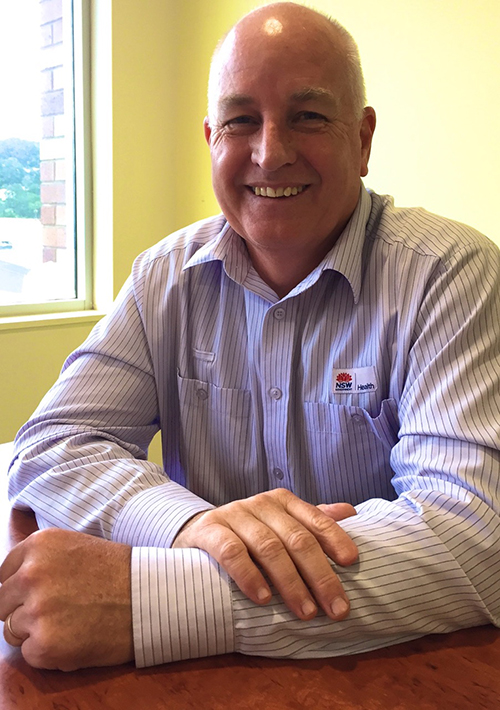In a situation said to be replicated across NSW, clinical communications between the public health system and general practice about mental health patients/clients is less than ideal.
However, the various shortcomings, including systemic issues, have now been identified, and a range of steps is being taken, or planned, in order to provide continuous care for both acute patients and those in the community setting.
This is the message to GPs from the Director of Mental Services for the Northern NSW Local Health District, Dr Richard Buss, who discussed the situation with GP Speak recently.
Suggesting health authorities “tend to treat the head separately to the body”, Dr Buss said the public system needs “a much closer engagement with primary care providers, notably GPs”.
He added, “Frankly, I don’t think we’ve done it well enough in the past and there’s still a lot of work to be done. However, the key issues have been identified and are receiving close consideration by the relevant parties, not least by the North Coast Primary Health Network.
“With federal government support, considerable effort is now being devoted to developing an integrated, person-centered approach to mental health issues. The aim is to ensure no one falls through the safety net.”
According to Dr Buss, people with mental health concerns are proportionately greater in number in the Northern Rivers than almost anywhere in Australia, and their average life expectancy is twenty years younger than the general population.
“So they need GPs for earlier physical problems as well, including chronic disease, and will need them for comprehensive physical and mental health care. As a result, GPs are the pivotal point for coordinating care for this cohort of patients.”
In this region, 23 per cent of all residents are believed to have an underlying or undiagnosed mental health problem. In addition, some 17 per cent of people have identified mental health concerns ranging from severe (3 per cent) through moderate (5 per cent) to mild (9 per cent).
Such figures account for the high rate of calls to the Mental Health Access Line - 1300 per month - and 3800 emergency department presentations per year, some 45 per cent of whom are admitted as mental health inpatients.
The busy-ness of mental health services can be gauged from comparing the annual target of client contacts, 74,000, with the actual number of contacts undertaken: 119,000.
“We have around 6000 new clients per year,” Richard Buss said.
The service also has a number of new facilities, including the sub-acute unit at the Byron Central Hospital, which accepts area-wide patients, and a planned refurbishment of a 16-beds for an Older Persons mental health unit for Lismore by September.
Despite the bricks-and-mortar enhancements, it is GPs who play the potentially most important role in supporting people in the ‘moderate’ and ‘mild’ categories, and are often required to assist in helping acute presentations post-discharge.
The contribution of pharmacists is also paramount, Dr Buss stressed, as the proper maintenance of prescribed medications is a key part of the therapeutic process.
He said less-than-ideal communications from and to the public health system continues to make it harder for GPs to provide the best level of care.
Partly, the problem is historical: “There has been something of a ‘culture clash’ between the public and private health systems, although there’s now a much greater commitment to working together.”
He feels the key - and most GPs would agree - is a better sharing of patients’ treatment histories at both ends of the chain, notwithstanding stringent consent requirements.
This requires information transfer at various stages of a treatment journey, for example at admission and discharge for acute patients, although he said this is now happening much better.
“However, the information flow is less thorough for clients being assisted in the community setting,” he added.
“The sharing of intake summaries with GPs is crucial for mental health clients and for those accessing drug and alcohol treatment facilities such as Riverlands in Lismore,” Dr Buss said.
“These, plus the subsequent discharge records, should automatically go to their GP, assuming they have one, as most do. For those without a GP [nine per cent], we advise them to establish a link with a practice, and assist them to do so if necessary.
“It’s obvious that without a patient’s history to hand, doctors will find it more time consuming to develop a well targeted care plan, especially for those with complex mental health issues, and co-morbidities.
“In turn, these care plans should be communicated to the mental health team who are likely to have an ongoing role in helping clients maintain their balance in life.
“In other words, the present one-way street - itself yet to function optimally - will become a two-way street, enabling better integrated care and improved client outcomes.”





